Summary Overview
Hotels Market Overview:
The worldwide hotel industry is expanding steadily, fuelled by demand in major segments such as luxury, business, boutique, and budget rooms. This industry comprises a wide range of hospitality solutions, such as online booking systems, on-premises service innovations, and hybrid models. Our paper provides a detailed examination of procurement trends, with an emphasis on cost optimization tactics and the use of digital tools for enhancing procurement and efficiency in operations.
Looking ahead, important issues in hotel procurement will include controlling infrastructure costs, guaranteeing scalability across properties, protecting data security, and seamlessly integrating new technology with current systems. The use of digital procurement technologies and strategic sourcing strategies will be important for optimizing hotel business and preserving a competitive edge. As global demand grows, hotels are beginning to capitalize market intelligence to enhance guest experiences, streamline operations, and mitigate risks.
Market Size: The global Hotels market is projected to reach USD 3,144.9 billion by 2035, growing at a CAGR of approximately 12.12% from 2025 to 2035.
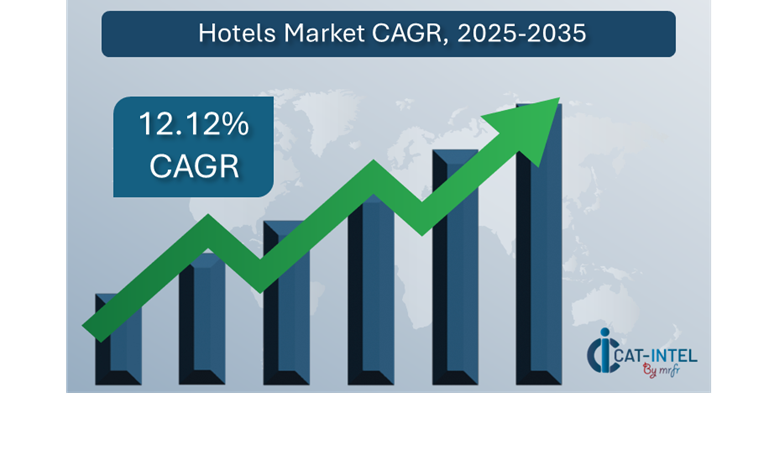
-
Sector Contributions: Growth in the market is driven by: -
Operational Optimization: Better communication between departments, from reservations to maintenance, leads to a more effective guest experience and resource management.
-
Hospitality and E-Commerce Growth: As online bookings increase; hotels are exploiting these systems to preserve a competitive advantage and improve customer happiness.
-
Technological Transformation: The rise of AI and machine learning is altering the hotel sector by allowing predictive analytics for guest preferences and automating customer service tasks.
-
Innovations: Modular hospitality applications enable hotels to choose and integrate only the capabilities they require, lowering costs and complexity.
-
Investment in Technology: Several hotel groups make investments in cloud-based technologies to minimize infrastructure costs and allow for remote property administration.
-
Regional Insights: North America and Asia Pacific are important contributors to the global hotel industry's growth, thanks to robust digital infrastructure.
Key Trends and Sustainability Outlook:
-
Cloud Integration: Provides scalability, cost effectiveness, and improved access to real-time data, enabling better decision-making and operational control.
-
Advanced Features: The integration of innovations such as AI, IoT, and blockchain is revolutionizing hotel operations and increasing transparency in transactions and bookings.
-
Focus on Sustainability: Hotels are increasingly placing sustainability first, using technology to analyse resource usage, decrease waste, and comply with environmental standards.
-
Customization Trends: There is an increasing demand for hotel management systems that are suited to various hospitality industries, ranging from luxury resorts to budget hotels. -
Data Driven Insights: Data analytics in hotel management systems enable firms to estimate guest demand, improve room occupancy, and track performance metrics.
Growth Drivers:
-
Digital Transformation: More hotels are utilizing technology to improve guest experiences, streamline operations, and increase efficiency.
-
Automation Demand: Process automation is in high demand, particularly for check-in/check-out, room assignments, and guest questions, which can assist to decrease operational bottlenecks and improve service delivery.
-
Scalability Needs: Scalable solutions ensure seamless integration across locations and departments, while maintaining high service standards across the board.
-
Regulatory Compliance: As global rules become more stringent, hotels are turning to technology to ensure compliance with both local and international legislation.
-
Globalization: The increasingly global character of travel necessitates systems that can manage multi-currency, multi-language, and international compliance needs.
Overview of Market Intelligence Services for the Hotels Market:
Recent investigations have highlighted numerous important issues in the hotel business, including high expenses for implementing for new technology and the need for bespoke solutions to satisfy specific operating requirements. Market intelligence studies give hotel businesses meaningful insights into procurement prospects, allowing them to identify cost-cutting methods, optimize relationships with vendors, and increase overall implementation success. These insights also aid in ensuring compliance with industry standards, delivering high-quality services, and successfully managing expenses.
Procurement Intelligence for Hotels: Category Management and Strategic Sourcing
To remain competitive in the continually changing hotel industry, firms are fine-tuning procurement strategies through expenditure analysis and vendor assessment of performance. Effective category leadership and strategic sourcing are critical for lowering procurement costs while still providing access to high-quality, creative solutions. Hotels may improve their procurement strategies, negotiate better supplier terms, and obtain the best providers of services and technology to meet their operational needs by employing actionable market knowledge.
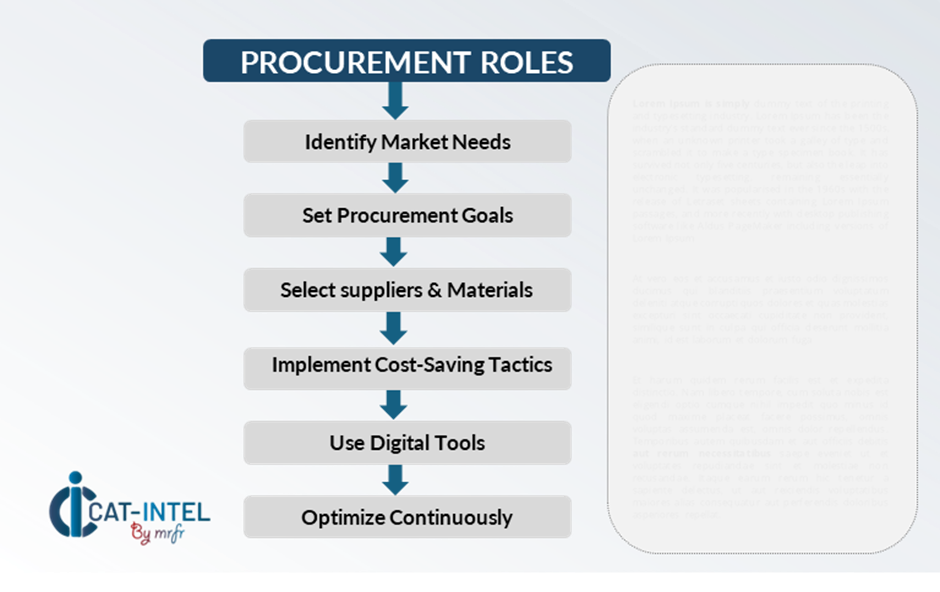
Pricing Outlook for Hotels: Spend Analysis
The pricing prognosis for hotel management and operational technologies is projected to remain moderately volatile, affected by several important factors. These include technological developments, increased demand for cloud-based solutions, the requirement for system modification, and regional pricing variances. The increasing integration of AI, IoT, and a greater emphasis on data compliance and safety are all driving up costs for hotel management software and related products.
Graph shows general upward trend pricing for hotels and growing demand. However, there may be fluctuations influenced by economic conditions, technological advancements, and competitive dynamic.
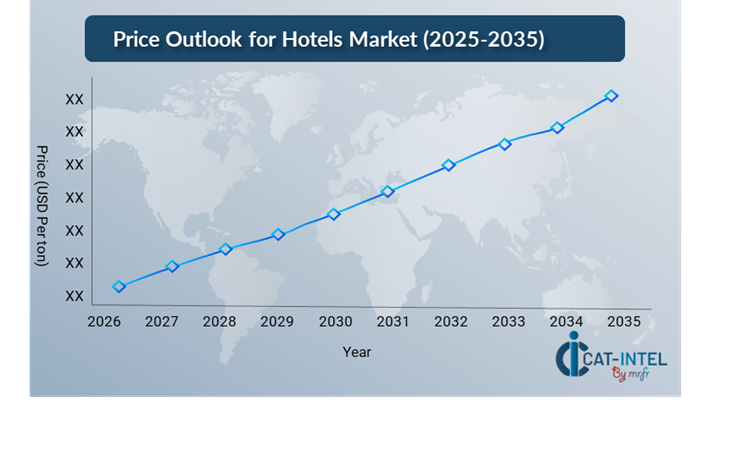
To properly reduce expenses, hotels must streamline procurement procedures, improve vendor management, and implement modular technology solutions. Utilizing digital tools for market monitoring, predictive analytics for pricing forecasting, and improved contract management processes can all help to dramatically reduce expenses.
Partnering with reputable suppliers of technology, negotiating long-term contracts, and looking into flexible subscription-based pricing models are important ways for efficiently controlling hotel software and service expenses. While problems persist, focusing on scalability, assuring robust implementation, and prioritizing cloud-based platforms will be critical to attaining cost-effectiveness and operational excellence in the hospitality industry.
Cost Breakdown for Hotels: Total Cost of Ownership (TCO) and Cost-Saving Opportunities
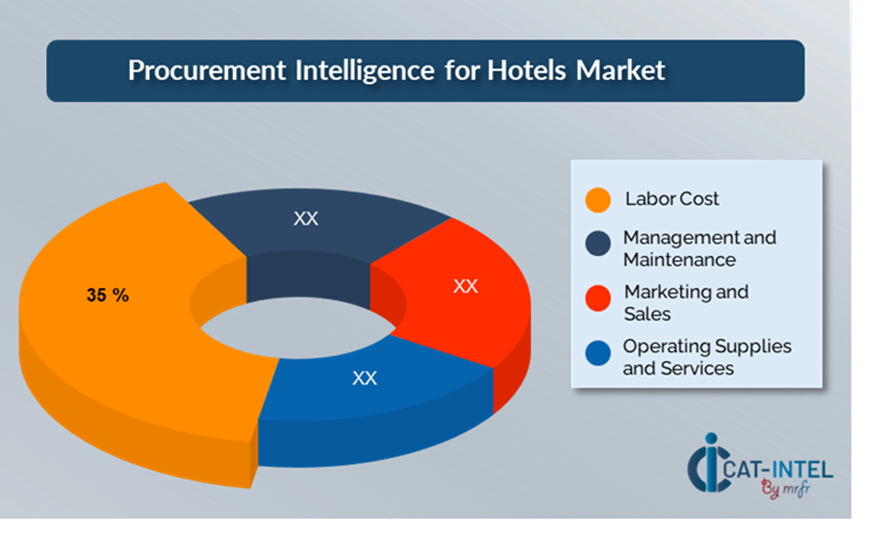
- Labor Costs: (35%)
-
Description: Labor costs, which include salary, benefits, training, and payroll taxes, are often the highest expense for most hotels.
-
Trends: Hotels are rapidly investing in technology such as self-checking in kiosks, mobile concierge applications, and automated maintenance solutions to lessen their dependency on human workers. - Management and Maintenance: (XX%)
- Marketing and Sales: (XX%)
-
Operating Supplies and Services: (XX%)
Cost-Saving Opportunities: Negotiation Levers and Purchasing Negotiation Strategies
In the hotel sector, streamlining procurement processes and using strategic bargaining strategies can result in significant cost savings and increased operational efficiency. Long-term partnerships with technology providers, particularly those that supply cloud-based solutions, can result in more attractive pricing structures and terms, such as volume discounts and bundled service packages. Subscription-based arrangements and multi-year contracts allow you to lock in reduced rates while protecting against future price hikes.
Collaborating with suppliers who value innovation and scalability provides extra benefits, including access to sophisticated features such as AI-powered analytics, IoT integration, and a modular system design. These capabilities help to lower long-term operational expenses while improving overall service delivery. Hotels can increase procurement transparency, reduce over-provisioning, and maximize software utilization by integrating digital technologies like contract management systems and usage analytics. Furthermore, diversifying vendor options and implementing multi-vendor techniques can assist decrease reliance on a single provider, manage risks such as service failures, and increase negotiation power to achieve the best terms.

Supply and Demand Overview for Hotels: Demand-Supply Dynamics and Buyer Intelligence for Effective Supplier Relationship Management (SRM)
The hotel industry is expanding steadily, propelled by the increasing digital revolution of industries such as hospitality, travel, and tourism. Technological breakthroughs, the necessity for industry-specific solutions, and global economic conditions all have an impact on supply and demand in this market.
Demand Factors:
-
Digital Transformation Initiatives: The growing demand for centralized data management, a seamless guest experience, and operational automation is driving the need for modern hotel management software.
-
Cloud Adoption Trends: The trend to cloud-based hotel management solutions is driving up demand for scalable, subscription-based software that allows for remote property administration while also improving data accessibility and lowering infrastructure expenses.
-
Industry-Specific Needs: Hotels, particularly in specialty areas like luxury resorts, medical tourism, and business lodgings, require specialized solutions built to match specific operational processes and visitor expectations and regulatory standards.
-
Integration Capabilities: There is a rising need for hotel management systems that work smoothly with other company software, such as booking platforms, CRM systems, and Internet of Things devices.
Supply Factors:
-
Technological Advancements: AI, machine learning, and cloud technology are revolutionizing hotel management systems, enabling new capabilities such as predictive guest behaviour analytics.
-
Vendor Ecosystem: A diversified selection of hotel software providers guarantees that hotel businesses have a variety of solutions to meet their operational demands, budgets, and geographic locations.
-
Global Economic Factors: Exchange rates, labour costs, and regional economic situations all influence the pricing and availability of hotel management solutions, especially for worldwide hotel chains. -
Scalability and Flexibility: Modern hotel management platforms are evolving into more modular, allowing suppliers to deliver solutions tailored to
Regional Demand-Supply Outlook: Hotels
The Image shows growing demand for Hotels in both North America and Asia Pacific, with potential price increases and increased Competition.
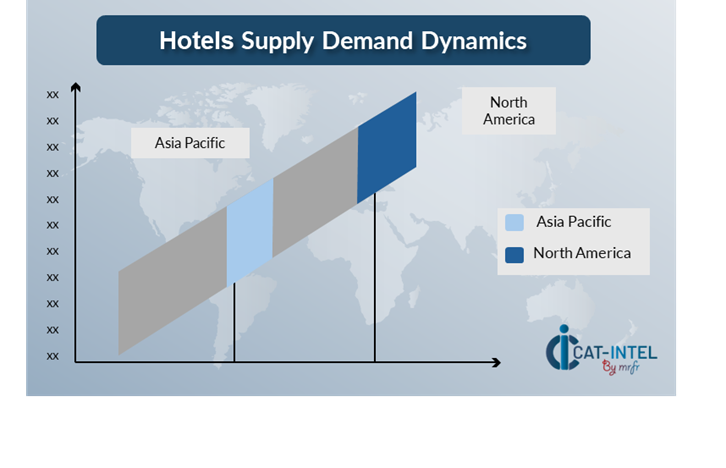
North America: Dominance in the Hotels Market
North America, particularly the United States, is a dominant force in the global Hotels market due to several key factors:
-
High Tourism Demand: North America, particularly the United States, draws millions of international tourists each year due to its numerous attractions, landmarks, and bustling cities such as New York, Los Angeles, and Las Vegas.
-
Strong Economic Growth: North America's economic stability and high discretionary income levels, particularly in the United States and Canada, make an ideal environment for both leisure and business travel.
-
Mature Hospitality Industry: The region has a mature catering infrastructure with an extensive record of innovation across hotel services, quality standards, and visitor experiences, which strengthens its position.
-
Business and Corporate Travel: North America is a global business hub, with many international firms and convention facilities attracting corporate visitors. -
Advanced Technology Integration: Innovations like smartphone check-ins, smart rooms, AI-powered concierge services, and personalized guest experiences improve operational efficiency and attract more visitors, establishing the region as a global hotel market leader.
North America Remains a key hub Hotels Price Drivers Innovation and Growth.
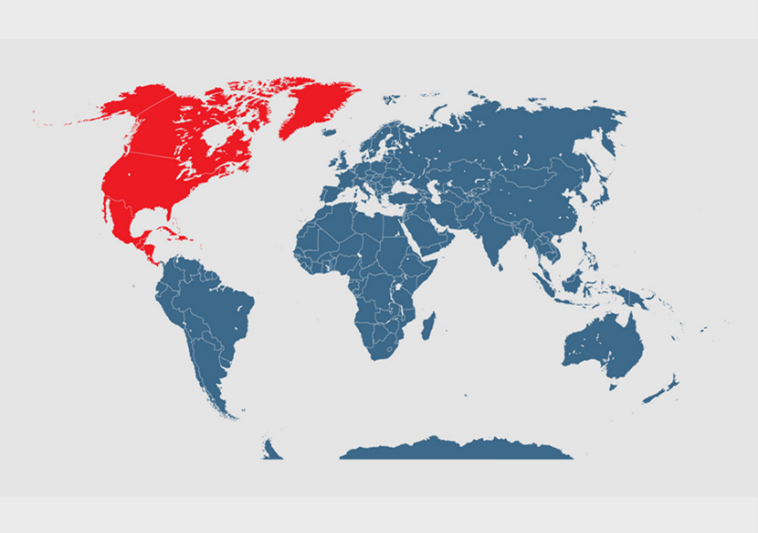
Supplier Landscape: Supplier Negotiations and Strategies
The hotel industry's supplier landscape is similarly broad and extremely competitive, with global hospitality giants and regional players influencing market dynamics. These providers have a significant impact on pricing models, service quality, and offering customisation. The market is dominated by well-known global hotel chains with management companies, while smaller, niche operators focus on providing specific amenities or unique experiences, such as boutique hotels, eco-friendly adaptations, or luxury properties with personalized guest service.
The hotel supplier ecosystem extends across important regions, with both worldwide hotel brands and innovative local businesses catering to unique regional or industry requirements. As hotels prioritize digital transformation and efficient operations, vendors are advancing technology such as cloud-based property management systems and integrated guest experience. In addition, several hotels are adopting flexible pricing methods, such as subscription-based or dynamic pricing, to assist them meet changing market demands and assure scalability. This move enables hotels to enhance guest experiences, streamline operations, and boost profitability in an increasingly competitive market.
Key Suppliers in the Hotels Market Include:
- Marriott International
- Hilton Worldwide
- InterContinental Hotels Group (IHG)
- Accor
- Hyatt Hotels Corporation
- Wyndham Hotels & Resorts
- Choice Hotels International
- Best Western Hotels & Resorts
- Radisson Hotel Group
- Meliá Hotels International
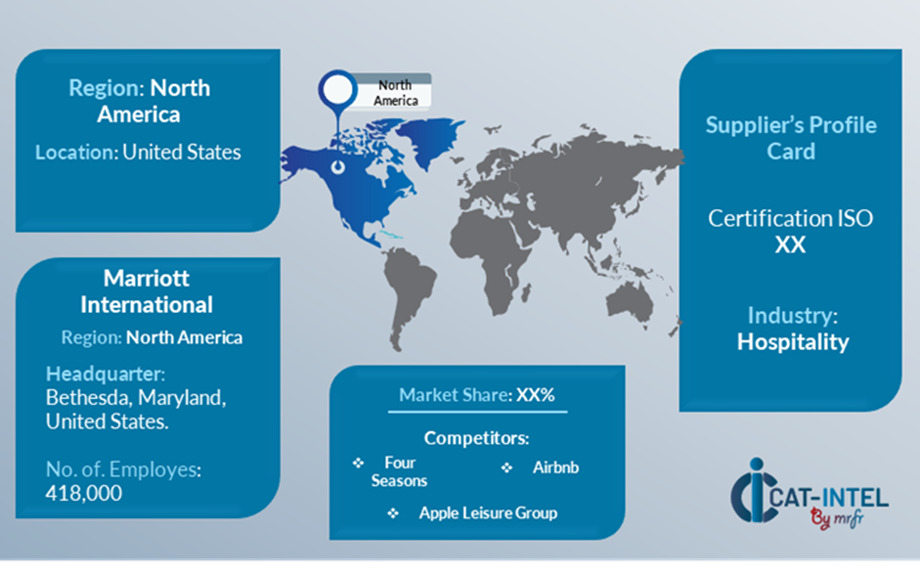
Key Developments Procurement Category Significant Development:
Significant Development |
Description |
Market Growth |
The hotel sector is expanding rapidly due to increased demand for lodging caused by rising worldwide travel, tourism, and commercial activities. |
Cloud Adoption |
As hotels increasingly use hybrid work models and manage operations across numerous locations, cloud solutions enable them to scale operations, streamline management, and improve data accessibility. |
Product Innovation |
The hotel sector is evolving with the advent of AI-powered systems, real-time customer care features, and personalised guest experience modules. These innovations increase customer satisfaction, optimize operational efficiency, and drive revenue development. |
Technological Advancements |
Machine learning, IoT integration, and automated robotic processes (RPA) are examples of technological advances that are transforming hotel management systems. These developments provide statistical data for demand forecasting, smart room features, and the automation of regular chores. |
Global Trade Dynamics |
International hotel chains must negotiate complex legislation governing operations in multiple countries, ensuring compliance while maintaining a unified global supply chain and guest experience. |
Customization Trends |
Hotels are increasingly looking for modular designs that enable customization of their management systems, such as integrating third-party applications for guest services, booking, payment processing, and resource management. |
|
Hotels Attribute/Metric |
Details |
Market Sizing |
The global Hotels market is projected to reach USD 3,144.9 billion by 2035, growing at a CAGR of approximately 12.12% from 2025 to 2035. |
Hotels Technology Adoption Rate |
Over 70% of hotels worldwide have adopted modern technological solutions, such as systems for managing properties, cloud-based booking, and AI-powered guest services. |
Top Hotels Industry Strategies for 2025 |
Key strategies include harnessing AI for individualized guest experiences, implementing cloud-based property management software (PMS), enhancing cybersecurity, and expanding mobile access for guests and staff.
|
Hotels Process Automation |
To improve operational efficiency, over 60% of hotel operations automate regular procedures such as check-in/check-out, room assignments, and inventory management. |
Hotels Process Challenges |
Major hurdles include expensive technological implementation costs, personnel training, difficulties with integration with older systems, and data security. |
Key Suppliers |
Marriott International, Hilton Worldwide and InterContinental Hotels Group (IHG) are among the leading vendors of hotel management solutions, offering complete platforms across all hotel kinds and areas. |
Key Regions Covered |
North America, Europe, and Asia-Pacific are key markets for hotel technology adoption, with rising demand in the luxury, business, and resort sectors. |
Market Drivers and Trends |
The desire for improved guest experiences, rising need for mobile accessibility, increased interest in smart rooms, and the integration of IoT and AI for operations all contribute to growth.
|










